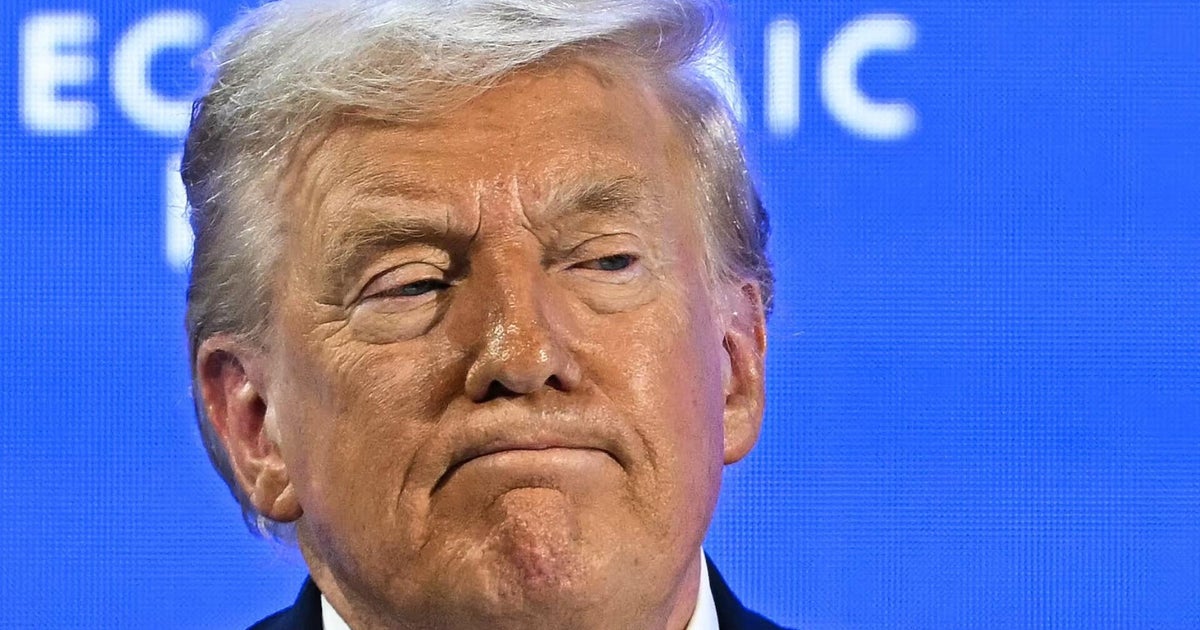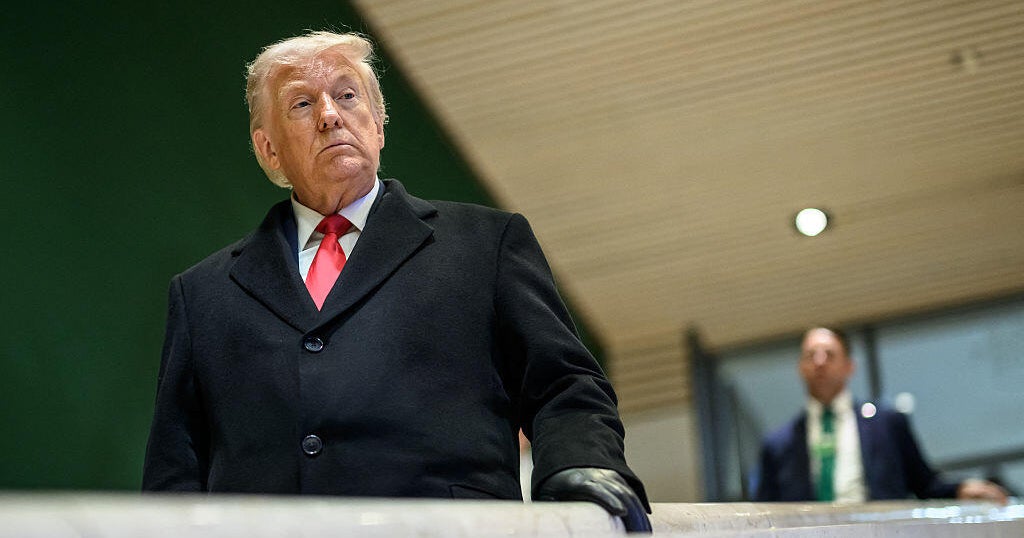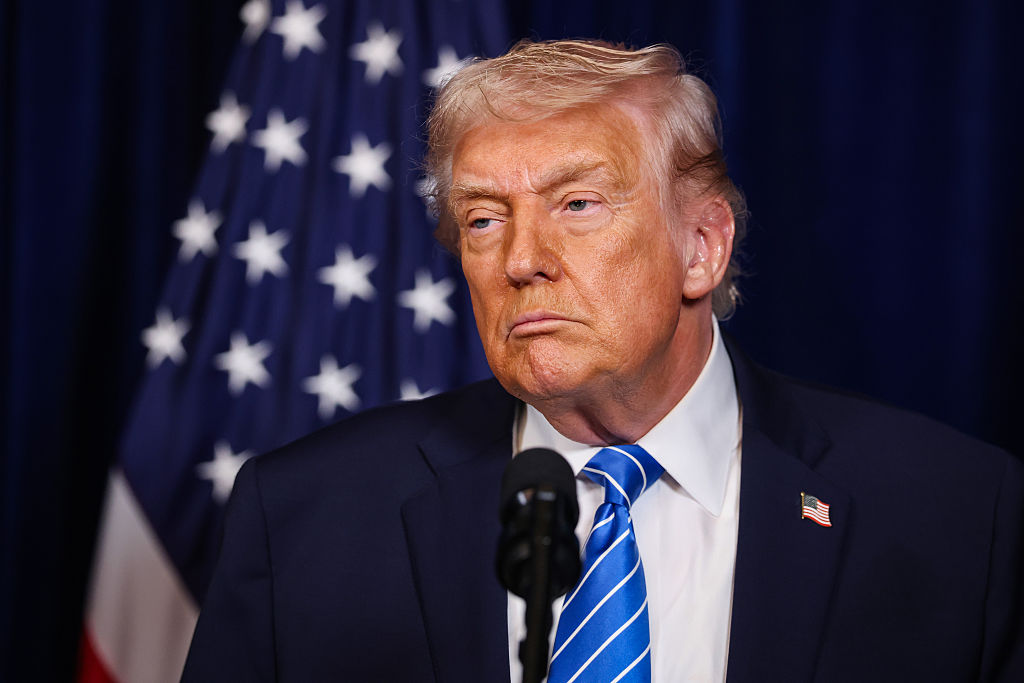"A footnote in history": The uncharted road to the impeachment and removal of a president
Washington — Congress has only drafted articles of impeachment against a president three times in U.S. history. It is now conducting an inquiry again against President Donald Trump, and while there are those three precedents, there are still facets of the impeachment process that remain untested.
The three other times in which lawmakers filed articles of impeachment against presidents, targeting Andrew Johnson, Richard Nixon and Bill Clinton, offer insight into the mechanics of Congress' extraordinary constitutional recourse to unseat the nation's leader through democratic means.
The precedent they set is limited, however. One of the impeachment campaigns did not lead to a Senate trial and none of them resulted in a president's conviction and removal from office. Because of this, part of the path to a president's removal through an impeachment process remains uncharted territory.
With the help of experts of American politics and constitutional law, we have outlined what we know — and don't know — about impeaching and removing a sitting president:
A remnant of British and colonial politics
The current American political process of removing government officials through a legislative impeachment and conviction stems from practices in place before the original thirteen colonies seceded from the British Crown in the late 18th century.
Ross Baker, a professor of political science at Rutgers University, said the British colonies in North America followed the two-step impeachment process in place in the Parliament, a bicameral legislature comprised of the House of Commons and House of Lords.
"Colonial legislatures were always impeaching the King's ministers and royal governors and other royal officials that were sent here," Baker said.
When drafting the U.S. Constitution, America's founders adopted this process, decreeing in their landmark document that Congress would have the authority to impeach and remove presidents, vice presidents and civil officers like federal judges. The constitutional standard for starting an impeachment process — evidence of "high crimes and misdemeanors"— was not defined.
Launching an impeachment inquiry
The Constitution granted the House the "sole Power of Impeachment" and historically, the chamber has exercised this prerogative by launching a so-called impeachment inquiry or investigation.
During the impeachment campaigns of Nixon and Clinton, the full House voted to authorize an inquiry to determine whether articles of impeachment were warranted. But Speaker Nancy Pelosi announced the inquiry into Mr. Trump last month in televised remarks and she has pushed back on assertions by the White House and Republicans that a vote on the House floor is needed to sanction such an investigation.
Baker and Susan Low Bloch, a constitutional law professor at Georgetown University, believe the speaker's argument is legally sound. They point to the fact that neither the Constitution or the rules of the House stipulate that a full member vote is a prerequisite for the House to begin an impeachment inquiry.
"There's nothing in writing that is has to be done that way," Low Bloch said, referring to a full House vote.
Drafting articles of impeachment
Once an impeachment inquiry is launched, the House decides whether to write articles of impeachment against the president. During the Nixon and Clinton presidencies, the House Judiciary Committee assumed the responsibility of drafting and approving the articles of impeachment to send them for a vote on the House floor.
But there's no constitutional mandate for the House Judiciary Committee to do this. "The process is just not spelled out," Baker said, adding that hypothetically any existing House committee — or even a select panel created just for the inquiry — can draft articles of impeachment.
The current investigation into efforts by Mr. Trump and his allies inside and outside the administration to elicit the help of the Ukrainian government for information about a political rival is being spearheaded by the several House committees, primarily the Intelligence, Foreign Affairs and Oversight panels. House Democrats have not explicitly said that the Judiciary Committee would ultimately draft articles of impeachment that may emerge from the inquiry.
But in a letter to other House committee chairs in late August, before the impeachment injury was launched, House Judiciary Committee Chairman Jerry Nadler suggested his committee would follow precedent and assume the responsibility of drafting articles of impeachment against Mr. Trump.
"The Judiciary Committee's authority and intent to conduct an investigation to determine whether to recommend articles of impeachment has been manifested previously through a variety of means and on numerous occasions," Nadler wrote in his letter.
Additionally, the subpoenas and requests for documents that the House Intelligence Committee has issued to administration officials in consultation with other panels leading the probe have all specified that the materials and information received may be shared with the Judiciary Committee.
Debate and vote on the House floor
After the Judiciary Committee or another panel drafts and recommends one or multiple articles of impeachment against a president, the measures are sent to the full House for debate and votes. Historically, each article has received its own vote, and some have failed to pass.
Although the Constitution does not outline this, the articles have been presented as resolutions, not pieces of legislation. If the resolution of impeachment garners a simple majority in the House, it passes and the president is subsequently formally impeached.
"They are analogous to an indictment in criminal proceedings. Those are the charges against the president," Low Bloch said, referring to articles of impeachment.
A trial in the Senate
The Constitution says the Senate has the "sole Power to try all Impeachments." Historically, that phrase has been interpreted as a requirement for the Senate to take up impeachment proceedings and determine whether to convict and remove a president upon a referral from the House.
Johnson and Clinton were both impeached in the House and tried in the Senate, while Nixon resigned before articles of impeachment were voted on by the full House. In all three cases, the understanding was that the Senate was obliged to take up a House impeachment referral.
"We've all assumed that the Senate has to take it up. The Constitution seems to essentially require that," Low Bloch said.
Although there were some concerns among Democrats that the current Republican-led Senate might decide to delay or even refuse to take up an impeachment resolution by the House, Majority Leader Mitch McConnell has said he is bound to bring such a resolution up for debate and trial because of Senate rules.
McConnell told reporters in October that should the House impeach Mr. Trump, "we will take the matter up." He said that the chief justice of the Supreme Court will preside over the proceedings and senators would "have to convene every day, six days out of seven, at 12:30 or 1:00 in the afternoon." The Constitution demands that the chief justice serve as the law officer for the trial.
He added, "Senators will not be allowed to speak — which will be good therapy for a number of them — and we intend to do our constitutional responsibility."
Upon getting a referral by the House, the Senate would host a trial to either convict or acquit the president on each article of impeachment. The Constitution doesn't lay out a timeframe for the Senate to complete the process.
"House members will act as so-called 'impeachment managers,' which will be the equivalent of the prosecution team in a criminal trial," Baker said, adding the senators would perform the duties of jurors.
Both the president and the House investigators can bring evidence and witnesses forward, according to Baker and Low Bloch.
If the Senate fails to garner a two-thirds majority to convict the president on any count, he or she would be acquitted — as was the case for Johnson and Clinton. But both Baker and Low Bloch noted that a House impeachment still leaves a longstanding political stain on a president's legacy.
"It's a footnote in history. It's a blot on his record," Low Bloch. "But it's essentially the same as getting indicted and then tried and found not guilty."
If two-thirds of senators vote to convict on one or more articles of impeachment, which at this point seems unlikely for President Trump, the Constitution says the president is to be removed from office and replaced by the vice president.
"The Constitution there is pretty clear: conviction means removal. It's not a two-step process," Low Bloch said. "I don't know what happens if the president stands in the doorway and refuses to leave."
Convicted and removed from office
Although a decades-old Justice Department legal memorandum has maintained that sitting presidents can't be criminally indicted, the Constitution decrees that a president is not immune to criminal prosecution after being impeached, convicted and removed from office.
A convicted president also has no legal recourse to appeal an impeachment and removal, Baker and Low Bloch said, since impeachment is a political process over which the courts have no jurisdiction.
Because a president has never been convicted and ordered removed by the Senate, there is no guidance or precedent on how he or she would be compelled to leave in the extraordinary event that he or she refused to step down.
"Given the danger that would present itself, if a convicted president refused to leave office, that would really amount to a presidential coup d'état," Baker said.






